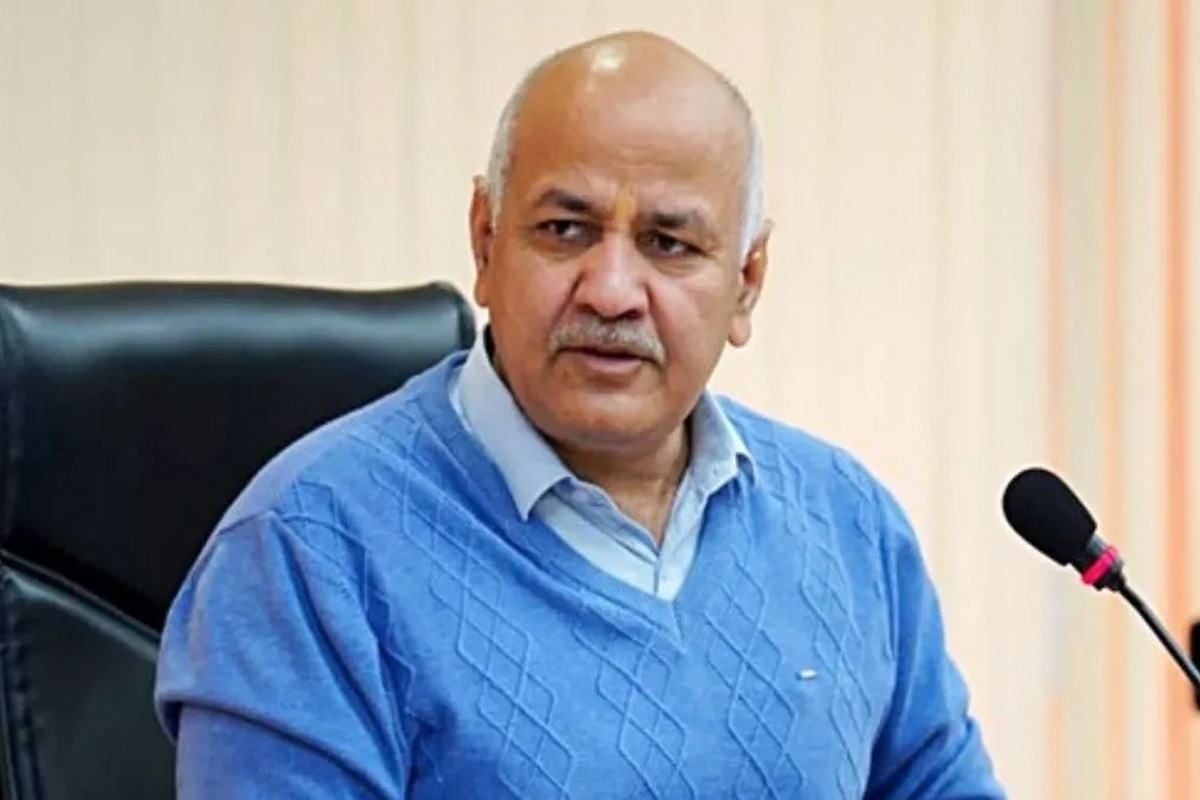Former Delhi deputy chief minister Manish Sisodia was denied bail by a special CBI court on Saturday in connection with the now-scrapped Delhi liquor policy case. While rejecting his bail plea, the court observed that his release “may adversely affect the ongoing investigation and will also seriously hamper the progress thereof”.
Sisodia was arrested by the Central Bureau of Investigation (CBI) on February 26 and by the Enforcement Directorate (ED) on March 9.
In his order, special CBI Judge MK Nagpal observed that Sisodia – a senior leader of the Aam Aadmi Party (AAP) – had “played the most important and vital role” in the criminal conspiracy and “had been deeply involved in formulation as well as implementation of the excise policy to ensure achievement of objectives of the said (criminal) conspiracy”.
In its order, the special CBI Judge M K Nagpal observed: “…as per allegations made by prosecution and the evidence collected in support thereof so far”, Sisodia “can prima facie be held to be architect of the said criminal conspiracy”.
The court further ruled that evidence collected by the CBI “not only shows” Sisodia’s “active participation in the above criminal conspiracy, but also the prima facie commission of some substantive offences of the PC (Prevention of Corruption) Act by him”.
Last week, it reserved the order on Sisodia’s bail plea after the CBI’s counsel submitted brief written submissions and judgements concerned, as directed by the court on the last date of the hearing. The CBI also submitted case diary details and several statements of witnesses in the matter.
In his bail application, Sisodia stated that no fruitful purpose would be served to keep him in custody as all the recoveries in the case have already been made. He also stated that he joined the investigation as and when called by the CBI.
However, the judge noted that the CBI investigation has also revealed that Sisodia got annoyed with Rahul Singh, the then excise commissioner, as he did not get prepared the Cabinet note as per the draft handed over to him by the AAP leader and for incorporating the opinion of legal experts also in the said note, along with expert committee report and the comments/feedback of public/stakeholders.
The judge observed that Singh, in his statement, has even claimed that in the evening of January 28, “he was telephonically scolded and threatened by Sisodia to be removed from the post of excise commissioner and he was even got removed from the said post subsequently on February 2, 2023 and in his place, Sanjay Goel joined as the department.
In his order, the judge said, observing the prosecution submissions, that Sisodia then got prepared a fresh Cabinet note with the help of Goel and though the said note contained the expert committee recommendations as well as the comments or feedback received from the public or stakeholders, but as per instructions of the accused, opinions given by the legal experts were not incorporated in or forwarded with the said report and this note was ultimately put up before the Cabinet on February 5, 2023 with a preconceived notion to bring about changes in the retail and wholesale models of the excise policy in total variance to the model, which was suggested by the committee.
“The decision to constitute GoM is also stated to have been taken by the Cabinet in this meeting, though GoM actually came to be constituted on February 9, 2023,” the judge noted.
It has also been alleged by CBI that though few meetings of the GoM were held in the month of February, 2021 and various types of records and data were sought from the Excise department and considered by the GoM, but no record of such discussions or considerations of the GoM meetings has been maintained and the GoM acted in a disguised manner as no minutes of meetings of the GoM were being prepared, the judge said.
He also observed that serious allegations have been made against Sisodia for tampering with evidence related to the case by destroying some of his mobile phones. These phones contained crucial information and documents in the form of digital evidence regarding the policy formulation and conspiracy entered into between the accused persons.
During the relevant period from the date when the matter was referred to the CBI by the Lt Governor for inquiry and registration of a criminal case, until Sisodia was made to join the investigation, he possessed and used four different mobile handsets. However, he produced only one handset before the IO and withheld three other handsets, raising serious apprehensions that he destroyed them with the intent of causing destruction of the digital evidence contained therein about the existence of the conspiracy and the participation of various accused, including himself, in the conspiracy.
The judge also pointed out that Sisodia does not satisfy the triple test as discussed earlier. While he cannot be considered a flight risk, his conduct, as reflected from the destruction or non-production of his previous mobile phones during the relevant period and the apparent role played by him in not producing or missing of the file of one Cabinet note put up through the then excise commissioner Singh, may raise serious apprehensions of destruction or tampering of further evidence and even influencing some prime witnesses of the case by him or at his instance, if he is released on bail by the court.










